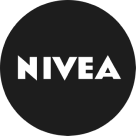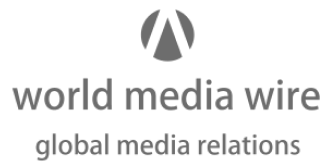Do you know what causes a social media reputation crisis – most often, it’s when companies have not thought things through. But do we know what happens in a case of a social media crisis, day by day?
We wondered how long social media crises usually last and how they come to be. Recently we analyzed the case of Dove’s ad media to see not why but HOW a reputation crisis spreads on social media, how long it lasts, and whether it can teach us something.
? Read Brand Reputation 101: Monitoring, Analysis, and Management Tools
We initially performed the analysis for Huffington Post contributor Mary Simms. You can check out her take on social media crises here.
For those unfamiliar with the affair, Dove posted an ad for Dove body wash which showed a black woman removing her top to reveal a white woman. The backlash started when the makeup artist Naomi Blake put screen grabs of the clip together and shared them on Facebook.
In a short amount of time, the post got shared by more than 10 thousand people. Soon Twitter users started sharing the post, the media quickly picked up on the story, and it all snowballed from there.
Here’s an overview of what happened:
- More than 30.000 posts (shares not included) discussed the ad between October 6 – October 13.
- 44.55 percent of mentions had negative sentiment.
- More than 12.000 (!) mentioned Dove with a variant of the word “racist”
- The Unilever brand was mentioned in context with the Dove brand in 32% of all of its total mentions in the last week, compared with the week before, when the “Dove + Unilever” mentions were just 1.69% of all of Unilever’s mentions.
7 Key Findings
A reputation crisis spreads like wildfire
One major point to remember is that a social media crisis rarely happens because ordinary people are trying to raise awareness about an issue. The main drivers of most crises are influencers and the media.
This is because 99% of all social media shares die with the next sharing cycle. In translation – even if you share a post, your friends probably won’t. Even when you’re outraged, they probably won’t be.
Most people probably didn’t even notice the Dove ad in their feed because they didn’t pay as much attention. But when an influential person spotlighted it, it suddenly became apparent, prompting the users to share the issue.
The story proved attractive enough for the journalists to cover. As a result, more users learned about the issue and started sharing it with their peers.
As a general rule, if you see users complaining, try to put down an offensive post before someone influential shares. You might prevent a lot of headaches down the road.
The ad was mainly discussed on Facebook

The topic was most frequently discussed on social media, with Facebook and Twitter making up 65.2% of all conversations. This makes sense since the crisis originated on Facebook.
Note: Data shows online discussions without other sources, such as TV and print.
The general sentiment towards the ad was very negative

Our automated sentiment system (90% accuracy) calculated a prevailing negative sentiment towards the advertisement, with more than 6.000 mentions marked as having negative sentiment. This is not surprising since the brand was mentioned along with the variants of the word “racism” or “racist” more than 12.000 times!
Dove was connected to the word “racism”

There were more than 12.000 users that connected the ad with racism in the observed time.
Note: The chart shows only social media channels, without web, forums, and blogs.
The reputation crisis had a huge effect on Unilever

Dove is one of Unilever’s 400 brands, but an exciting thing happened during the crisis. Unilever itself had more than 34.000 mentions in the last week alone. But, despite being just one of 400 brands, of those 34.000, more than 12.000 were in the context of Dove. That means more than 35% of mentions of a global corporation with more than 400 brands were due to one brand’s ad.
If you compare it to the week before, you’ll see the usual is less than 1% of all Unilever mentions. That means that despite Dove being just one of Unilever’s 400 brands, it greatly influenced the whole corporation’s brand reputation.
The reputation crisis laster a couple of days
Depending on whether you are asking Dove’s PR service or a random observer, the answer can range from “an eternity” to “just a bit”. From October 7 – October 11 the crisis was discussed frequently, but other things started getting attention.

As you can see from the graph, the topic cooled down after a week. Today almost no one talks about it anymore. The #boycottdove tweets are stopped, even though they occasionally appear.
Dove didn’t get out unscathed
No, but the damage might be different than you think. While the incident will probably not influence Dove’s short-term sales results, the story lasted long enough for many people to get exposed to a negative image of Dove.
Reputations are not built overnight, and while they can be temporarily tarnished, despite what Warren Buffet says, it usually takes more than 5 minutes for a company to go into complete reputation oblivion.
But you will lose customers in the long run if you chip away at your reputation constantly by doing questionable things and do not vigilantly monitor and improve your actions.
That’s why it’s so important to monitor your brand and its reputation constantly. By keeping an eye on your brand’s online performance and tracking how people react to your statements, campaigns, and even simple tweets – you’ll be able to avoid situations like Dove’s.
To Conclude
Brand monitoring helps you recognize patterns in your online presence. You get insights into how people talk about you and how they feel about your brand and products. Especially with monitoring tools, you can get insight into several brand mentions over time; you can analyze sentiment and see how big of a reach you have.
When things like an unexpected reputation crisis happen, you’ll know immediately. The tool will alert you if you don’t notice the sudden jump in the number of mentions yourself. This way, you’ll know immediately something’s wrong. What’s more, you’ll be able to keep an eye on the situation as it evolves and react accordingly.
If you’d like to see how Determ can help you mitigate crises and save your brand reputation, book a demo with one of our experts, and we’ll find the best option for you.



